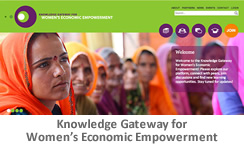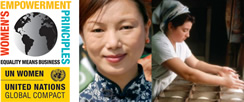
Women’s Social and Economic Empowerment

To promote women’s economic empowerment in Georgia, UN Women closely collaborates with the Government of Georgia, partner NGOs, international finance institutions, development organizations and the private sector. The issues of women’s economic empowerment are intertwined with achieving the Sustainable Development Goals (SDGs), particularly SDGs 5, 8, 10 and 12. To this end, UN Women works at the policy and institutional level, supporting women entrepreneurs and rural women, promoting women’s involvement in tech and strengthening the private sector.
Supported by UN Women, the LEPL Rural Development Agency developed the country’s first stand-alone women-centred programme in 2022 to facilitate women entrepreneurs’ access to finances by co-financing the cost of setting up greenhouses for women farmers. Notably, this programme has continued to operate since 2023 thanks to State funding.
To create an enabling environment for women entrepreneurs, along with providing business training, individual mentoring and support for business digitization, UN Women organizes annual Women’s Entrepreneurship EXPOs to facilitate the exhibition and sale of their products. Women entrepreneurs from all over Georgia are selected to participate in the event, providing them with opportunities for gaining market access, connecting with large businesses and expanding their networks.
Social mobilization is another priority area for UN Women to promote the economic empowerment of rural women. This initiative aims to equip women with interpersonal and professional skills that will help them in their economic empowerment and improve the well-being of their communities. By applying the social mobilization methodology, UN Women also works towards improving access to information about labour rights for domestic workers and promoting the formalization of their work.
Another domain of women’s economic empowerment is promoting the involvement of women and girls in tech, which UN Women implements by developing women-oriented training programmes and promoting gender mainstreaming in State programmes. Ukrainian refugee women represent a group of particular significance for the economic empowerment portfolio.
UN Women also assists former female inmates and probationers with gaining access to shelters, psychological counselling and vocational workshops.
To ensure the engagement of the private sector in promoting gender equality and women’s economic empowerment in the workplace, marketplace and community, UN Women collaborates with the private sector within the framework of the Women’s Empowerment Principles (WEPs). Companies can join the WEPs network through the following link: https://www.weps.org/join.
UN Women’s activities aimed at women’s economic empowerment in Georgia are supported by the Governments of Austria, Denmark, Japan, Norway and Switzerland and by the European Union.

